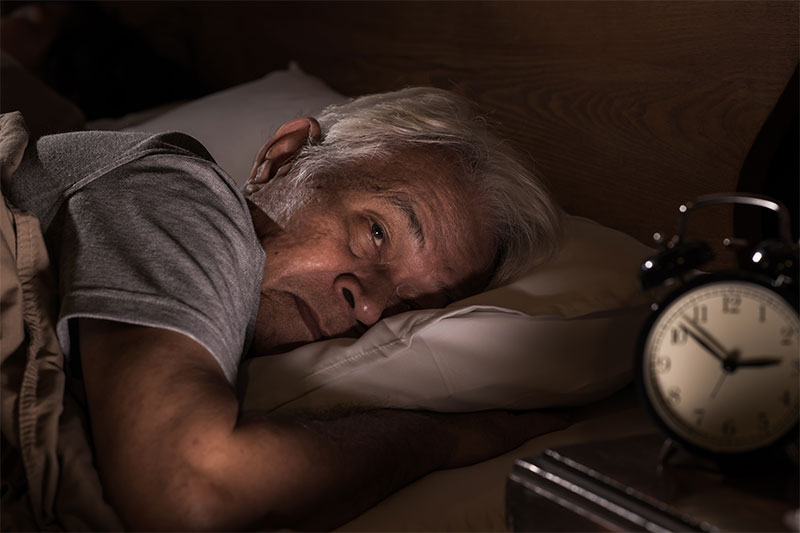Are you finding that you may fall asleep but stay asleep only for a few hours in the night and you are waking up with anxiety? Are nightmares or intense vivid dreams to blame for this? Or, are you at a point where you try to fall asleep but you are tossing and turning for hours until you crash, and end up waking up feeling that you did not have any rest?

If you relate to any of this, then the good news is that there are ways to stop waking up with anxiety at night – or to fall asleep quicker and to stay asleep so you get a good night’s rest.
There are multiple causes for waking up with anxiety at night, or the struggle to fall asleep. Let’s go over the most common causes which can easily be rectified:
Unmanaged Stress
Stress is a normal part of life and that is something that everyone needs to accept. In fact, a little bit of stress is necessary for your well-being. If there was an absence of stress, you would not get very far in life and the absence of stress would also be demotivating. However, if you have too much stress, then you have to learn to manage it. A normal amount of stress that you experience in a day while it is managed will not disrupt your sleep. However, if you have too much stress and you are not managing it properly, it will get in the way of your sleep. Your brain will be too active and it will be too difficult to shut it off which is why even if you do fall asleep, you will wake up with anxiety.
Tips on how to manage insurmountable stress will be discussed later on.
Drinking Alcohol Or Caffeine Late In The Day
If you have one glass of wine in the evening, and only limit yourself to one glass, you can do that as long as you don’t go to sleep within three hours of drinking wine. However, if you drink too much alcohol at night or caffeine after 2 pm, then you will risk having a bad night’s sleep with insomnia and anxiety. The thing to do is to limit your alcohol intake, and do not drink coffee after 2 pm.
Screens

You have likely heard this before but if you are watching TV, or using your tablet or smartphone within two hours of going to bed, the blue light emitted will disrupt your melatonin production. Therefore, you can pretty much guarantee that you will have a bad night’s sleep. Put away your devices within two hours of going to bed, and turn the TV off. Go read a book and sip on some chamomile tea instead which will help you fall asleep and stay asleep.
However, let’s go back to dealing with unmanaged stress.
How Do You Deal With Too Much Stress That Inferferes With Your Quality Of Sleep?
When you have too much stress to handle to the point that you are unable to get good quality sleep, then you will need professional help. You can try unwinding by doing relaxing activities each night such as listening to calming music or reading a book. However, that may not be enough to help you fall and stay asleep if you are dealing with too much stress.
Firstly, you have to determine what is causing you such immense stress. If your mental health is poor, then you need to look into CBT therapy, or psychotherapy, as well as potentially depression or anxiety medication. You will also want to look at and evaluate your diet. If you are eating too much sugar or processed foods, you will want to make dietary changes and stick to organic and nutrient-rich foods. Stick to fruits, vegetables, wholesome protein sources such as eggs and meat, essential fatty acids from salmon or avocados, and whole-grains. Ditch simple carbs.
You also want to do exercise early on in the day such as taking a half-hour brisk walk at least five times a week. And do not work out at all close to your bedtime either. Take up meditation and yoga as well once you are on a better path to helping your mental health improve.
If you are too stressed due to caregiving or other responsibilities, then you need to seek out respite care as much as you can. And delegate where you can as well, and that applies if most of your stress is coming from work too.
The bottom line is in order to stop waking up with anxiety and to get a better night’s sleep night after night, you need to take care of yourself and your health. If you are still struggling after making the adjustments to your health that you need to make, then you need to go for a sleep study to determine if you have an underlying condition affecting your sleep.



